Tuesday’s Tip – City Directories
City Directories are a wonderful resource for the genealogist. It can track a family in between the census year and around that pesky missing 1890 United States Census. Many cities and towns have been creating city directories every year about their residents. Some of these city directories go as far back as the early 1800s. Generally the larger the city, the earlier the city began publishing its directory.
In many cases a city directory can provide a glimpse of what life was like when your ancestors were walking the streets. Below is a depiction of a building from New York City. This building was near where my ancestor Henry L. Sanders was living when he was in New York City. That area today looks a whole lot different.
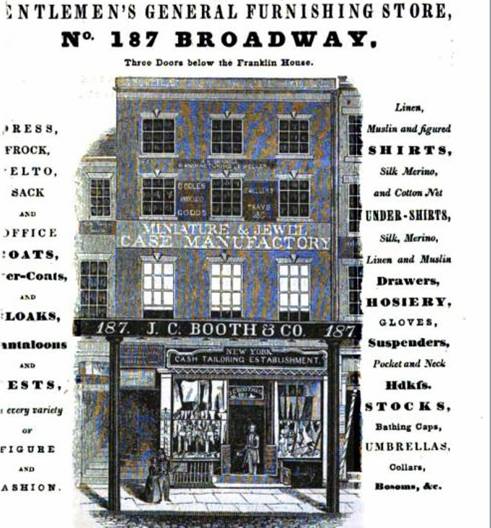
City directories normally document all males who are working or retired. Woman may be listed in the directories as well. Generally women are listed when their husband has died or they are working. The directory will list the street address. It may also indicate the occupation and the employer of the individual. When a resident moved to a different town or city, the city directory will sometime indicate which town they moved to. You can find out a lot by looking at your ancestor over time.
The following four images are Washington DC City Directories between 1884 and 1886. My ancestor Edwin A Banks was living there at the time. Edwin was not listed in any previous directories or any after 1886.
1884 Washington DC City Directory : Edwin Banks
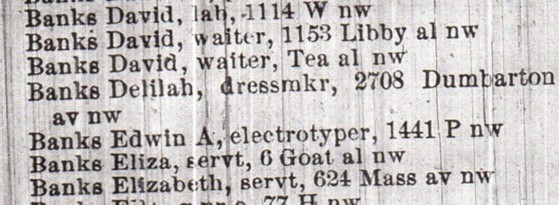
1885 Washington DC City Directory : Edwin Banks
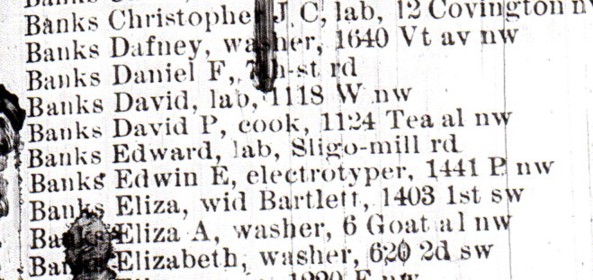
1886 Washington DC City Directory : Edwin Banks
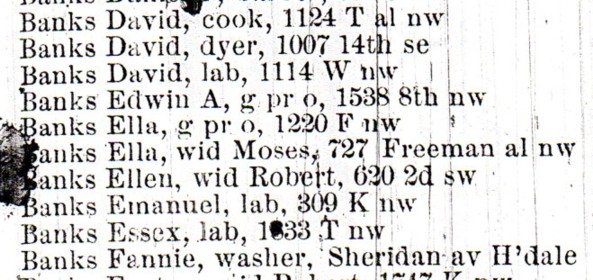
1886 Washington DC City Directory : Abbreviations
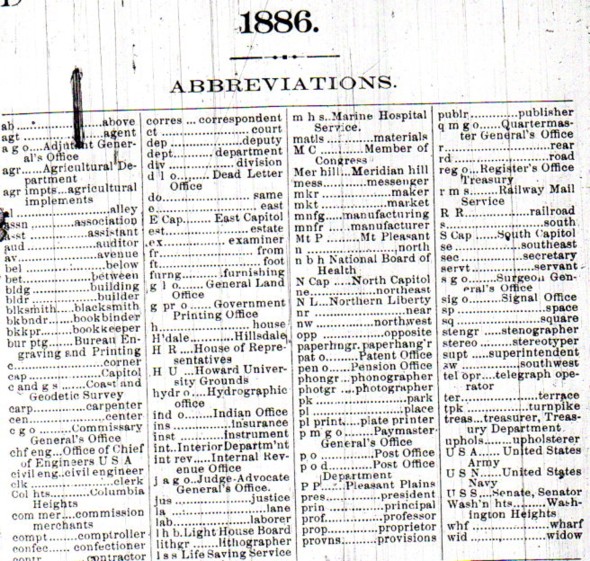
- In 1884 & 1885 Edwin A Banks is living at 1441 P nw and is working as an electrotyper.
- By 1886, Edwin had moved to 1538 8th nw and is working for the Government Printing Office (g pr o).
- Notice in 1886 there is a Ellen Banks, wid Robert (widow of Robert). Check for this is proceeding years to narrow down when Robert died.
City directories are usually easy to find. Your state library or archives will usually have a collection of the states historical directories. At the Connecticut State Library (CSL) for example, you can find many city directories microfilm or microfiche. The CSL also has some out of state directories for cities close to the Connecticut border. I was able to follow Sidney Ford from the time he resided in Albany, New York in the 1850s, through his move to Hartford Connecticut. I was able to narrow down the date he died based upon his disappearance from the Hartford City Directories. You can also find city directories in Google Books.
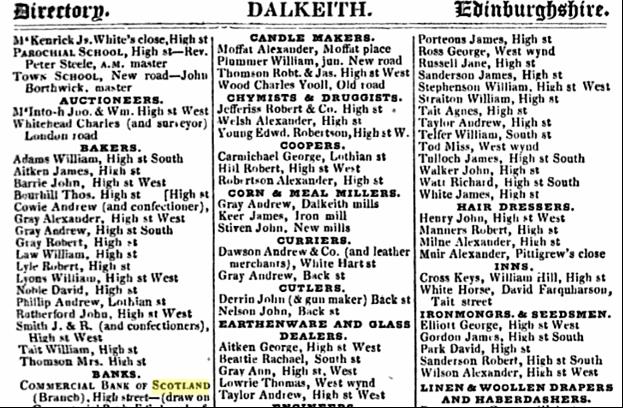
Here’s a word of caution I learned about the hard way. Just because your ancestor disappears from a directory and his wife shows up in the next years directory, doesn’t mean he died. My ancestor Patrick Fraher/Fryher disappears and reappears a number of times in the city directories. Each time he disappears his wife shows up instead. She is even listed as a widow in the 1884 New Britain (Connecticut) City Directory. I was looking for Patrick’s death certificate around this year. It comes to find out that my Patrick was still alive at least ten years after his wife is listed as a widow in the city directory.
LOOK FOR YOUR ANCESTORS TODAY IN CITY DIRECTORIES!
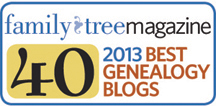

Hello, Thanks for visiting the Grave Encounters blog, yes, 2 years old today, but I usually blog at Anglers Rest and they has been going longer – since 2002!
Hi Julie, thanks for stopping by. I’ll check out your other blog.
Hi Jim and thanks again for visiting my Blog earlier. I agree completely that City Directories are a very valuable resource and I have used them whenever I can find them. The early directories were much different than our “phone books” in that they often listed all members of the household and not just the so-called head of the household. They usualy provided a physical address and as your exples show even the occupation of the listed person. I saw one directory from a small town I now forget where the names are entered alphabetically by FIRST name so to find all the members of the household you have to scan all the names unless you know the first name of everyone in the family. It was a time when people thought first about folks by their first name and there was not the concern with privacy we have today, so listing occupations was usual not rare.
Hi John, thanks for stopping by. I’ve had numerous breakthroughs using city directories. They are just one local resource which is not used often enough. Another local resource which doesn’t get much attention is local town reports. They can provide a wealth of information.
Regards, Jim